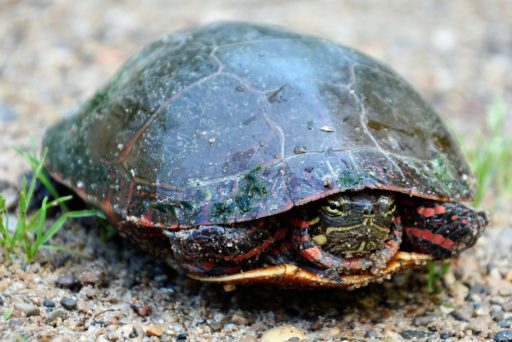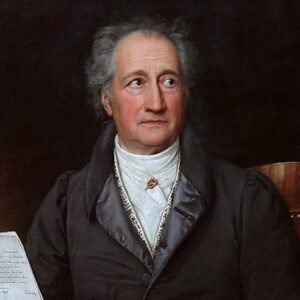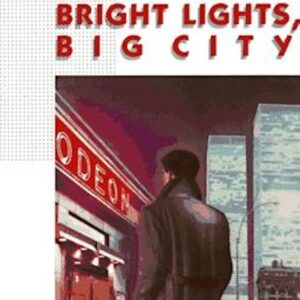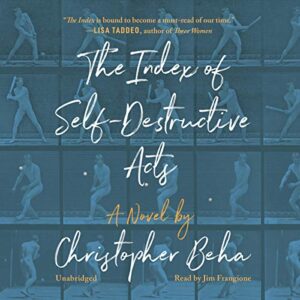My longtime friend Michael and I have had an ongoing conversation about a particular neurosis we seem to share—an ongoing drive to worry about the random people we’ve encountered and the places we’ve left behind. (The Internet, of course, has been enormously helpful in this quest.) “Hey guess what?” he’ll call me up and say, “I finally found Phil and Julie,” referring to a pastoral couple we both knew in 1989. Then we’ll remember them—or others, or places, or specific qualities of light in the afternoon. Occasionally, we’ve called these folks up to check back in.
We’ve talked before about why it is, exactly, that we do this. The motivation for this recollection is not nostalgia. I don’t think either of us would want to recapture the past in some fashion, much less return to it. ”Our circle of empathy is kind of large,” he says. He is a psychiatrist now, after having gone back to medical school at the age of forty-five.
Rather, what we’re engaging in is a kind of shared level-finding. “We tell ourselves stories in order to live,” goes the famous Joan Didion phrase. Michael and I also are constitutionally observers, and following these trails is a way of confirming to each other that these experiences, these lives who have touched ours are, in fact, real. And that in a very real sense, we are here because of them.
There are some lessons here for the creation of a humane literature—a need on the part of all of us to continually expand the scope of our observation.
Now both MIchael and I have lived in a bunch of places, been around a bunch of communities, churches, and subcultures. But that’s true of most people these days, isn’t it? Even if they’ve not done much travel or moved around, there’s the sheer breadth of the Internet—to say nothing of newspapers and (of course) books—that can allow us to venture into limitless voices and perspectives.
But while our prospective horizons might be broader, our vision, sadly, is not. I’m hardly the first person to remark on the irony that the technologies which have given us the world have caused us instead to fear encountering the Other all the more. It is as though the terror of the unknown has caused us, like a turtle being poked at by a child with a stick, to withdraw inside the safety of our shells. (And if you’ve never read the brilliant Mark Doty poem, “No,” then you should.)
Even a work as maximalist and putatively world-historical as David Foster Wallace’s Infinite Jest, with its own ethnographies and taxonomies, comes across as airless, the overgrown bric-a-brac of a mind sunk into itself.
This overwhelming self-referentiality is exceptionally ironic given the emphasis of current mainstream discourse on marginalized communities and their importance of “inclusion.” I’m all for Inclusion, but in my own experience, the inclusion that seems to be on offer is the mere gathering of difference—not its dynamic melding. We are a basketful of sullen turtles, pulled into our shells, I guess.
These resulting habits of mind are devastating to our politics and neighborhoods—I don’t need to tell you that; any fool can see that from reading the (online) newspaper—but they are corrosive to our literature as well.
There’s a certain lament that comes up right about now, that follows on that argument, that observes that our literature might be less fractured if it were only working within a tradition. Maybe within the Tradition, whichever ours is.
If our literature were only less identity-focused, this argument goes, less subdivided into those endless sociological categories of religion, ethnicity, race, and gender, it might succeed better at expressing the universal.
I’m a sometime traditionalist myself, and I, too, long for greater nuance amid all this slicing and dicing of niche categories—which all too often become little more than labels.
But it’s worth recalling that there’s an actual reason for that quest for “representation,” which lies in the decades (centuries?) of neglect that the inhabitants of all these disparate identities experienced. Whose voices were, in fact, not invited into the discourse. No wonder the withdrawal into their shells! I certainly do not blame them, as a result, for hardening their shells into a voice of repeated assertion.
No, I do not blame them. They were failed by generations of others, whose own imagination failed them.
And that is where my diagnosis of the failures of literature floats back into the exhortation I want to make of you now:
To generate a humane literature—hell, to generate authentic humanity—we must expand the powers of our own observation. This is a vote for expanding the scope of your acquaintances, of the world you see and encounter.
Let us absorb other people—among them the random and inefficient and incidental—just as though we were dragging a blanket along a sidewalk, sweeping them like leaves into its fringe.
Let us see others. Tell the stories and follow where they lead. And then we, too, might be seen.
This Thanksgiving, at last, Michael and I might just call up Phil and Julie.
Caroline Langston was a regular contributor to Image’s Good Letters blog, and is writing a memoir about the U.S. cultural divide. She has contributed to Sojourners’ God’s Politics blog, and aired several commentaries on NPR’s All Things Considered, in addition to writing book reviews for Image, Books and Culture, and other outlets. She is a native of Yazoo City, Mississippi, and a convert to the Eastern Orthodox Church. She lives outside Washington, D.C., with her husband and two children.





